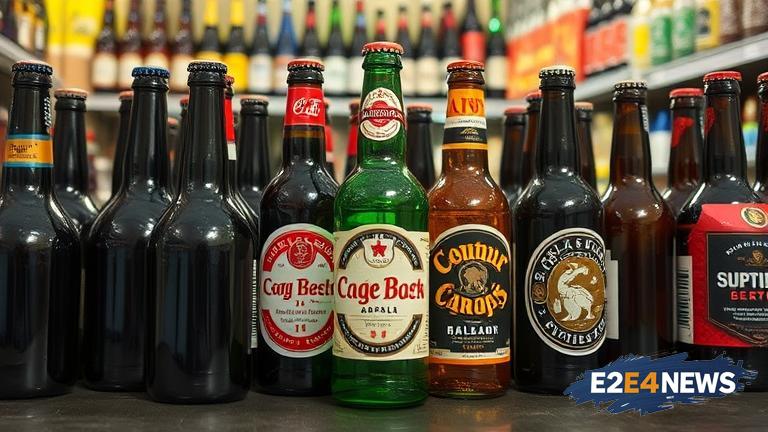The recent shutdown of beer stores in Canada has left many consumers in a state of uncertainty, particularly when it comes to returning their empty bottles and cans. With the closure of these stores, the usual drop-off points for empties are no longer available, leaving people to wonder where they can take their recyclables. The Beer Store, a popular chain of beer stores in Canada, has been shutting down locations across the country, citing declining sales and increased competition from other retailers. As a result, many consumers are being forced to look elsewhere to return their empties, with some turning to other beer stores, grocery stores, or even online platforms. However, the lack of clear guidance on where to take empties has led to confusion and frustration among consumers. Some have taken to social media to express their concerns, with many calling on the government to provide more support for recycling programs. The issue has also raised questions about the environmental impact of the beer store closures, with some worrying that the lack of convenient return options could lead to an increase in litter and waste. In response to the concerns, some breweries and beer stores have begun to offer alternative return options, such as curbside pickup or special collection events. However, these efforts are not yet widespread, and many consumers are still left without a clear solution. The Canadian government has also been criticized for not doing enough to support recycling programs, particularly in rural areas where access to recycling facilities may be limited. As the situation continues to unfold, consumers are being encouraged to contact their local government representatives to express their concerns and advocate for more support for recycling programs. In the meantime, many are being forced to get creative with their empties, with some using online platforms to find alternative return options or even starting their own community-led recycling initiatives. Despite the challenges, many consumers remain committed to recycling and reducing their waste, and are calling on the government and industry leaders to do more to support these efforts. The beer store closures have also highlighted the need for more sustainable and convenient recycling options, with many consumers expressing a desire for more streamlined and efficient systems. As the demand for recycling continues to grow, it is likely that we will see more innovative solutions emerge, such as mobile recycling apps or community-based recycling programs. However, until then, consumers will have to continue to navigate the challenges of returning their empties in a post-beer store closure world. The impact of the beer store closures on recycling programs is not limited to Canada, with many other countries facing similar challenges in terms of providing convenient and accessible recycling options. As the global community continues to grapple with the challenges of waste management and sustainability, it is clear that more needs to be done to support recycling programs and reduce waste. In Canada, the beer store closures have also raised questions about the role of government in supporting recycling programs, with many calling for more funding and resources to be dedicated to these initiatives. As the situation continues to evolve, it will be important for consumers, industry leaders, and government officials to work together to find solutions to the challenges posed by the beer store closures. By doing so, we can ensure that recycling programs continue to thrive and that our environment is protected for generations to come. The beer store closures have also had an impact on local communities, with many small businesses and charities relying on the revenue generated from recycling programs. As a result, the lack of clear guidance on where to take empties has led to a decline in revenue for these organizations, making it even more challenging for them to operate. In response, some communities have come together to establish their own recycling programs, with many volunteers working tirelessly to collect and process recyclables. These efforts are a testament to the power of community-led initiatives and the importance of supporting recycling programs. As we move forward, it will be essential to continue to support and promote these initiatives, while also advocating for more government support and resources to be dedicated to recycling programs.





